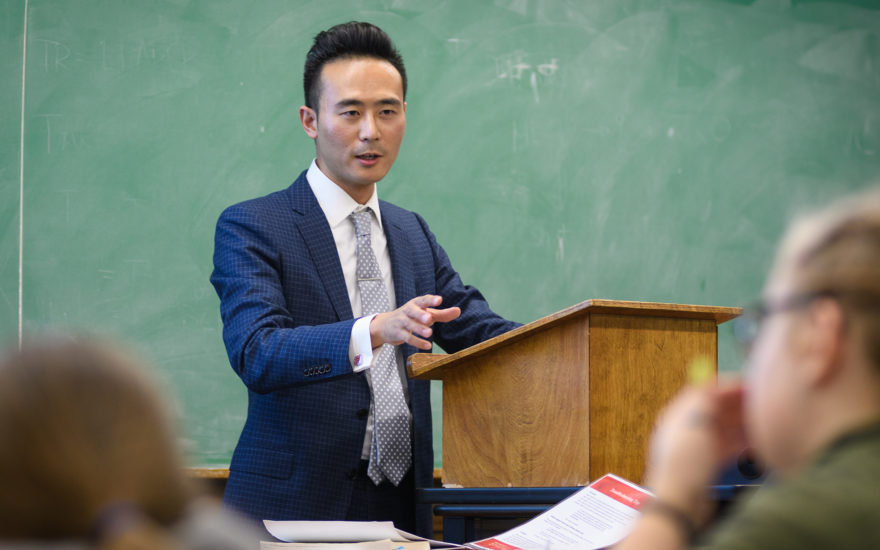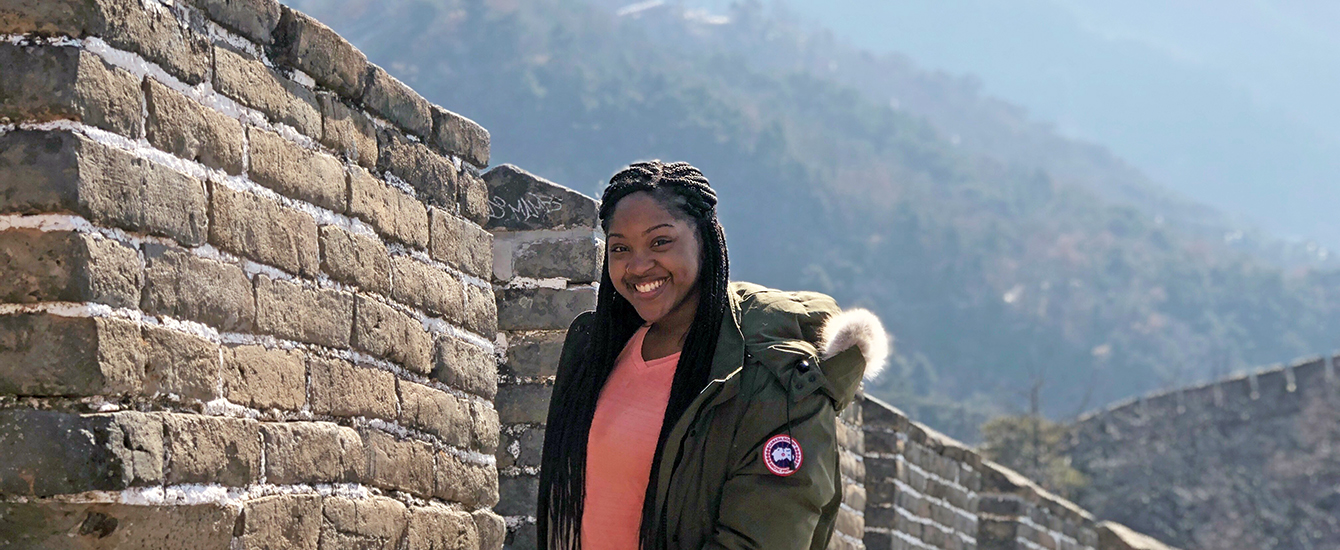The scope of Asian Studies is broad, covering some of the world’s oldest cultures. Through hands-on learning and study abroad opportunities, you’ll explore firsthand the history, politics, economics, and cultures of the eastern, southeastern, and southern regions of Asia.


Why Choose asian studies at Clark?
- Declare a focus in one of three areas — China, Japan, or the combined region of East, South, and Southeast Asia — and complete a minor (or a second major) in another department that complements your area of interest.
- Complete immersive study abroad and internship experiences in China, Japan, and/or Vietnam, through one of several programs with leading institutions in those countries.
- Gain functional literacy in a language relevant to your area of focus; Clark offers courses in Chinese and Japanese.
- Asian studies is one of seven undergraduate programs affiliated with Clark’s Center for Gender, Race, and Area Studies, a community of faculty and students who study diverse, disadvantaged, or marginalized societies and populations, with an emphasis on promoting social justice.
- Apply
- Request Info
Are you ready to take the first step?
Featured Courses

Trafficking: Globalization and Its Illicit Commodities
Illegal trafficking — people, animals, and controlled substances — continues to thrive around the globe. Explore the opportunities and dilemmas faced by those who study and try to eliminate these shadow economies.

The Vietnam War
The ubiquitous presence of living Vietnam War veterans is a reminder of a defining moment in American history. Dig into the history and culture of Vietnam and its fraught relationships with France and the U.S.

Miracles of Asia: Economic Growth in Global Contexts
Why are many Asian countries (think China, India, and Japan) major players in global affairs? Through readings and class discussions, you’ll explore the reasons behind their rapid economic rise and sudden crises.
Asian studies is one of seven undergraduate programs affiliated with Clark’s Center for Gender, Race, and Area Studies, a community of faculty and students from a variety of disciplines who study diverse, disadvantaged, or marginalized societies and populations, with an emphasis on promoting social justice.
At Clark you’ll get more than a great education; you’ll also be prepared for a long, productive career and life of consequence. And once you’ve completed your degree, you can join other Clark alumni who have gone on to work for great organizations and attend some of the best graduate schools in the world. The following communities may be of interest:
Arts, Media, Design, and Communications
Non-Profit, Human Services, and Education
Sales Account Representative
Cheng and Tsui Publishers, Boston, MA
Coordinator
Hopkins-Nanjing Center, Washington, D.C.
Teacher
JET Program, Japan
Resident Advisor
CET Academic Programs, Harbin, China
Inventor Relations
Advanced Technology Relations
“I wanted to be open to learning all that I could about a different and unique way of life. It’s part of my Chinese-American identity that I never had the opportunity to fully explore and learn about before.”
Etta Scott-Smith ’18
Minor in Asian studies
Frequently Asked Questions
What can I do with a major in Asian studies?
At Clark you’ll get more than a great education; you’ll also be prepared for a long, productive career and life of consequence. And once you’ve completed your degree, you can join other Clark alumni who have gone on to work for great organizations and attend some of the best graduate schools in the world.
Graduate schools attended by Asian studies graduates from Clark include:
- New England School of Law; J.D.
- School of Oriental and African Studies, University of London; M.A. in Chinese literature
- University of Colorado, Boulder; Ph.D. in comparative literature
- University of California at Los Angeles; M.A. in East Asian studies
- University of Rochester, New York; M.A. in film preservation
What skills will I learn as an Asian studies major?
- Proficiency in an Asian language
- Resilience, persistence, and the creativity required to understand, live in, and negotiate an unfamiliar culture
- Ability to integrate your new knowledge of Asian history and culture into a deeper understanding of liberal education
Is there an academic achievement award for Asian studies?
Dr. Lee Gurel ’48 Asian Studies Award
The Dr. Lee Gurel ’48 Asian Studies Award is given to an outstanding graduating senior for academic excellence in Asian studies.
Is there an honors program for Asian studies majors?
During your junior year, you might be accepted into the Asian studies honors program. Joining the program means you’ll work closely with a professor to create a thesis on a topic of your choice. Examples of recent honors thesis topics are:
- Scar Literature of the Chinese Cultural Revolution
- Cinema of the Defeated: The Postwar Crisis of Masculinity in 20th Century German and Japanese Films
- Horror, Eros, and Fantasy in Modern Japan
Be a force for change.
Come study at a small research university with a strong liberal arts core.

